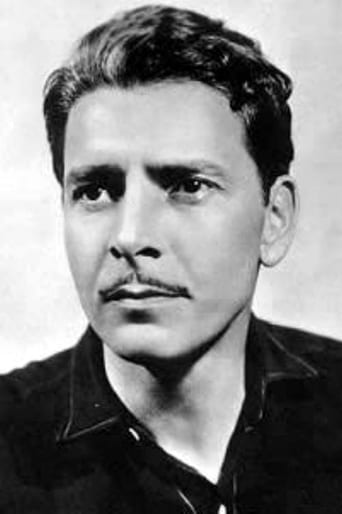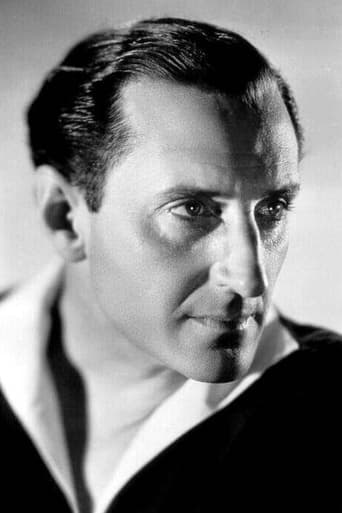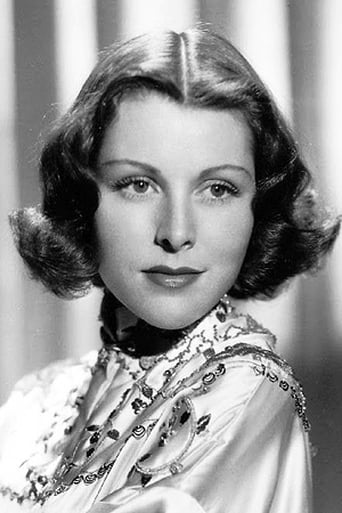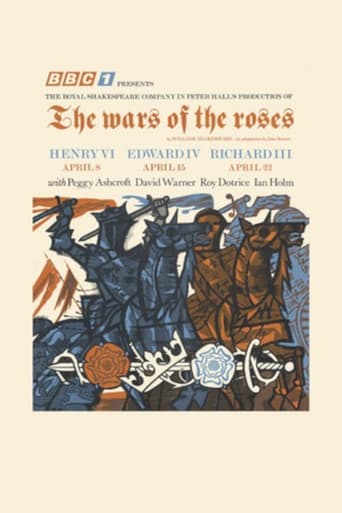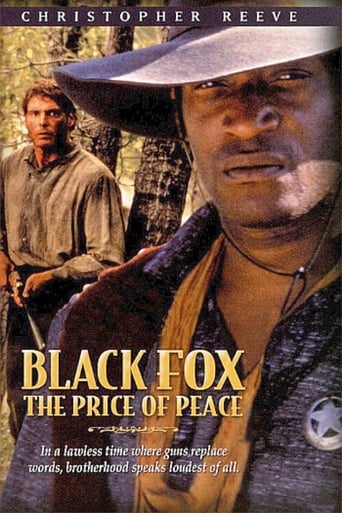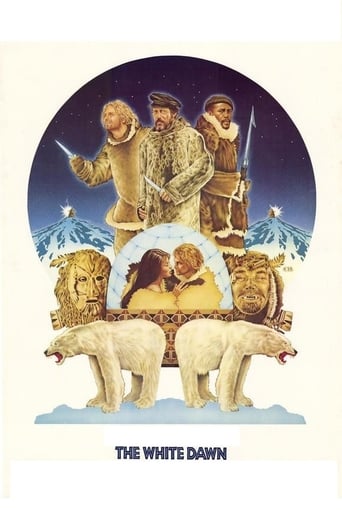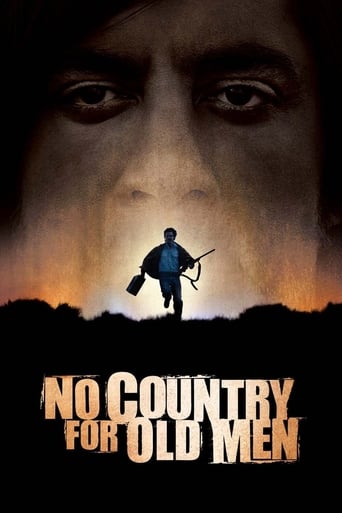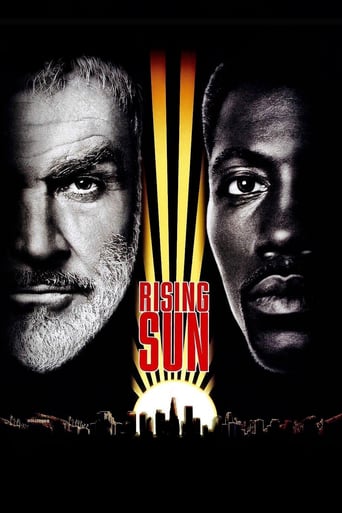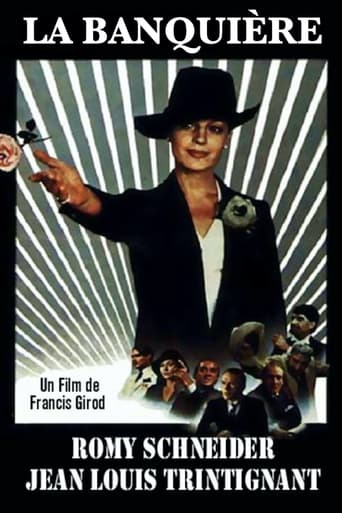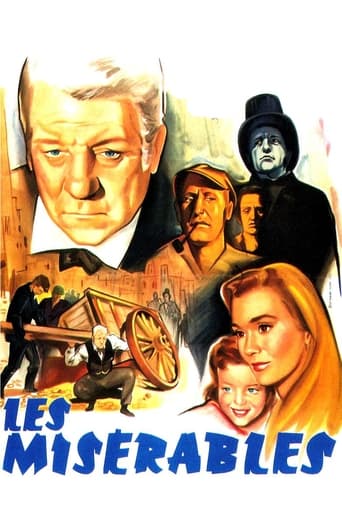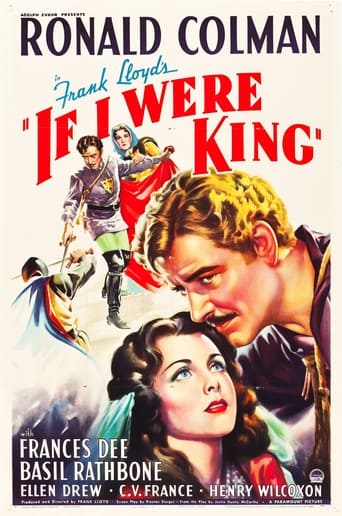
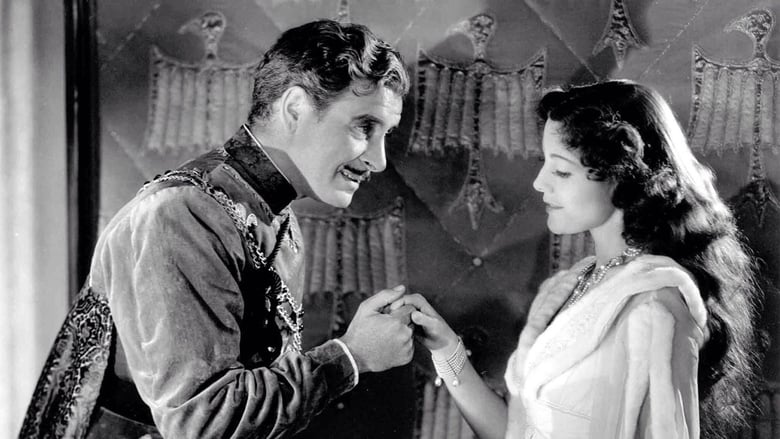
If I Were King (1938)
King Louis XI masquerades as a commoner in Paris, seeking out the treachery he is sure lurks in his kingdom. At a local tavern, he overhears the brash poet François Villon extolling why he would be a better king. Annoyed yet intrigued, the King bestows on Villon the title of Grand Constable. Soon Villon begins work and falls for a lovely lady-in-waiting, but then must flee execution when the King turns on him.
Watch Trailer
Cast


Similar titles
Reviews
If English Medieval history is unevenly shown in Hollywood films (see my comment on YOUNG BESS), French Medieval history is non-existant. The sole real centers of films on France from 1000 to 1500 are those dealing with Joan of Arc and those dealing with that contemporary pair of Louis XI (the "Spider King") and Francois Villon, the great vagabond poet. In short, the period of roughly 1429-1431 (with a brief look into the future, via George Bernard Shaw, into the 1450s), and 1471 - 1477). The rest of the fifteenth century is ignored. As for preceeding eras, BECKET, THE LION IN WINTER, and THE CRUSADES all deal with the tangle of French and English politics in the years 1160 - 1199, and the two films of HENRY V do deal with the invasion of France in 1415, and the battle of Agincourt (but no films about Crecy or Poitiers). Louis XI was one of the most astute, crafty monarchs of France or any other nation in history. He is not a loveable figure (as his nickname of "Spider King" shows). But loveability was not a viable policy for any French monarch. England was a constant threat, even after the final defeat of the English in the Hundred Years War in the 1450s (long after Joan of Arc was burned). The monarchs would insist on keeping the Kingdom of France among their titles (after England, Ireland, Wales, and Scotland) into the 18th Century. There were dynastic marriages between the Burgundian royal house (modern day Belgium and Holland and the Rhineland make up what was Burgundy) and the British. Louis had to constantly balance friendly relations with realism about British aims (and Burgundian aims for that matter). Things came to a head in 1470 when Phillip of Burgundy, a wise leader, died and his son Charles the Bold (more accurately "the Rash") became Prince of Burgundy. Because of certain French lands near Paris owned by the Burgundians, Charles was a subject of Louis. But Louis's government was poorer than Charles's and he kept toying with either breaking his liege position with Louis or seizing the French throne. This latter policy led to a series of wars, including a siege of Paris. Remarkably, due to superior leadership qualities, Louis beat Charles - or rather Charles beat himself. In 1477 Charles died in a battle against another target - the Swiss republics. Louis died in 1483, the first really great modern French monarch or leader.He was suspicious, and ever ready to use torture. But given the general standards of his period (the same time as the Wars of the Roses, and of the likes of Cesare Borgia) his use of torture was actually consistant with his contemporaries. Louis popped up in other stories aside from IF I WERE KING - he was the king in THE HUNCHBACK OF NOTRE DAME (in the 1939 film played, more kindly, by Walter Hampden). In a silent version of IF I WERE KING, BELOVED ROGUE (with John Barrymore as Villon)Conrad Veidt played him as more crafty and dangerous - and superstitious. He would also show up as the monarch fighting Charles the Rash in the film of QUENTIN DURWARD (after the novel of Sir Walter Scott) that starred Robert Taylor. In the present film he is played by Basil Rathbone, for once not tied down to sleuthing or to using a sword against Tyrone Power or Errol Flynn. He is able to demonstrate the frustration of a wise monarch, hampered by traitors and by a lack of popular support. The screenplay by Preston Sturges gives him some good lines of humor as well (he was a capable comic actor - see his pompous dried-out composer in RHTHYM ON THE RIVER, or even his greedy relative in WE'RE NO ANGELS). The make-up on his face makes his eyes look constantly rhumey and nearly unrecognizeable.Villon is a great poet, of whom we know much but not enough. We don't know when he was born or when he died. We know he was a criminal (a thief and a murderer) but was able to avoid the scaffold - at least in known recorded history. In this film and BELOVED ROGUE he is forced to come to the aid of France, taking over the key job of High Constable (the previous High Constable, whom he killed, was a traitor to Louis). As this is a fiction, we are led to believe Villon manages within a week to instill spririt into the people of Paris, and to lead them to defeat the Burgundian army. Actually it was Louis who did that, with Charles's incomparably bad choices helping him. Still it makes a good story, and an enjoyable historical fantasy. The only thing missing is the Rudolph Friml score from Friml's operetta version, THE VAGABOND KING which did not appear until 1954 on screen. But even without that music it was enjoyable.
Hollywood certainly had reason to thank their lucky stars that Ronald Colman's career straddled both silent and sound films, and that he was of an age where he was still believable as a romantic leading man as sound became the industry standard. Silent films had made him a major star; sound revealed that amazing, distinctive voice, oft imitated but never surpassed, that made him legendary.Of his amazing output of classic films in the 1930s, IF I WERE KING is one of the most audience-friendly, and, with THE PRISONER OF ZENDA, stands as two of the best swashbucklers of the decade. With a wryly engaging script by the legendary Preston Sturges (based on the famous operatic play by Justin Huntly McCarthy), and the 'no frills' directorial style of veteran director Frank Lloyd (who specialized in action films), the fanciful adventures of vagabond poet François Villon (Colman) may lack the sweep of the Michael Curtiz/Errol Flynn spectacles at Warner Brothers, but makes up for it with humor, a sense of the absurd, and Colman, himself, who could act rings around the younger Flynn.As fifteenth century Paris is besieged and slowly crushed by Burgundian armies, all that holds the city, and the dream of a united France together, is the iron will of doddering old King Louis XI (brilliantly portrayed by frequent Flynn nemesis Basil Rathbone, who is obviously having a ball in the character role). Meanwhile, the rabble of the city, victims of the corruption of the court, are stirred by the writings of poet/revolutionary Villon, who steals from the rich, dodges authorities nimbly, and is unafraid to speak the truth. While drinking stolen wine with friends at a local inn, he presents such an eloquent case of how he'd change things "If I were King", that Louis, watching in disguise, and well aware of his government's shortcomings, decides to put Villon to the test. Capturing the revelers, he surprises the poet by appointing him Lord High Chancellor for a week, daring him to improve things...and Villon delivers, demanding the Burgundians to surrender(!), opening the food coffers to the starving masses (and forcing the aristocracy out of their well-fed complacency), dispensing justice tempered with mercy, and creating among the lower classes a sense of patriotism and greater purpose towards King and Country. As the King cackles at the turn of events, the military and aristocracy despise Villon (other than beautiful Katherine de Vaucelles, portrayed by Frances Dee, who falls in love with the Lord High Chancellor, while suspecting him to be the penniless poet who once pledged his love as she attended Mass). As the week draws to a close, and plots and machinations against Villon reach an explosive climax, the future of not only Paris but all of France will depend on the poet's quick wit, decisiveness, and ability to rouse the masses. While the history portrayed is fanciful, Ronald Colman is the perfect embodiment of the charismatic Villon, and Rathbone's cranky gruffness offers the ideal compliment to Colman's suave persona.If the film has a fault, it is in the print itself, which is showing signs of deterioration and aging. One hopes that it will be a candidate for restoration, soon.IF I WERE KING should be preserved for future generations to enjoy!
A cunning king of France allows a rapscallion poet to become Lord High Chancellor - for the space of only one week...IF I WERE KING is a fascinating film based on the fictionalized lives of two very real personages, Louis XI and François Villon. The performances are impeccable, Preston Sturges' script is literate and Paramount Studios provided excellent production values.As Villon, Ronald Colman makes full use of his most magnificent talent - his beautiful speaking voice. Like honey flowing over velvet, it caresses the dialogue & adds emotional heft to the lines of Villon's poetry used in the film. While perhaps a bit mature to swashbuckle altogether convincingly, he plays the lover very creditably in the romantic scenes.Obviously determined not to acquiesce the entire film to Colman, Basil Rathbone is hilarious as King Louis. Gaunt, wizened & cackling like a crone, he effortlessly steals his every scene. Eschewing the use of his own superb speaking voice, Rathbone plays a character that will remind some viewers of the disguises the actor would use shortly as Sherlock Holmes. The sequences between Rathbone & Colman are very enjoyable, especially since in their only other joint appearance, A TALE OF TWO CITIES (1935), they had no scenes together.The two women involved in Villon's life are portrayed by Frances Dee & Ellen Drew, one an aristocrat, the other a wench - lovely ladies both. Smaller roles are filled by fine character actors Henry Wilcoxon, Walter Kingsford, Sidney Toler, John Miljan & Montague Love. Way down the cast list is the always reliable Ralph Forbes, playing the king's toady.Movie mavens will spot an uncredited Lionel Belmore playing the Chief Steward of the royal palace.**********************************Fat & ugly, Louis XI (1423-1483) was nicknamed 'the Spider' as a grudging tribute to his remarkable skills at plotting & scheming. Although he showed talent in administration from an early age, he also was quite adept at angering his father, Charles VII, and ultimately had to take refuge at the Burgundian court until the time of his succession to the throne. Almost universally unpopular, he set up an elaborate spy network which kept him informed as to nearly all that went on in his kingdom. His overriding mission was to crush the power of the great nobles, especially Burgundy - now ruled by the successor to Louis' former protector - and this he was largely able to do, thanks to his policy of encouraging the minor nobles and the middle class. The might of the French crown was significantly strengthened during his despotic reign.François Villon (1431-1463?) was both France's greatest lyric poet and a complete scoundrel & ruffian. Raised by a chaplain, Villon absorbed none of the virtues of the Church, consorting with the basest of companions and involving himself in numerous scrapes, misdeeds & robberies. His murder of a priest during a street brawl was but one of several outrages. Imprisoned many times both in Paris and other French municipalities, Villon was almost preternaturally fortunate in being able to take advantage of various pardons & amnesties - all undeserved. After one final clemency, he was banished from Paris for life - whereupon he completely disappears from the historical record.Although stained by a most unsavory reputation, critics have long admired Villon's poetry and have extolled both the exquisite imagery of his tender verses and the unremitting detail in the poems describing his coarser experiences.The bulk of the tale told in IF I WERE KING is a complete fantasy. There is no indication that Louis XI & Villon ever even met.
I knew I was in for a treat when I saw Preston Sturges was scriptwriter for this film, which was clever and energetic, but I didn't expect such wonderful performances from both Basil Rathbone (who received an Oscar nomination) and Ronald Colman. I always felt Colman didn't pick up his lines fast enough (at least in his later years), but he's perfect playing the poet François Villon. Colman sounds like a poet whenever he speaks in all his roles! You've never seen Rathbone in any role quite like that of Louis XI. He sounds at first almost childlike, but it is a mask - he's pretty wily and knows what he is doing all the time. The script, of course, is pure hokum. You can't imagine for one moment that a king would make Grand Constable a man who was caught stealing food from the royal storehouse. As Grand Constable, he runs France! The extended scene where he, while hidden, metes out sentences to his friends who were also caught stealing, is pure delight, and very worthy of Sturges. I found fault with Villon's earlier escape, as it was too easy, and with the casting of Ellen Drew in the role of one of the wenches at the Fir Cone tavern, and who loves Villon. There was too much to enjoy in the film so those were easy to forgive. His other love is Frances Dee, playing one of the nobles at court, and she is always stunningly dressed in Edith Head's costumes. The rest of the cast was all first rate, and the Oscar-nominated sets were excellent. Curiously, the film is set in 1463, the approximate year that Villon died at the age of 32. Also, William Farnum, who plays General Barbezier in this film, played Villon in the 1920 silent of the same name as this film.


